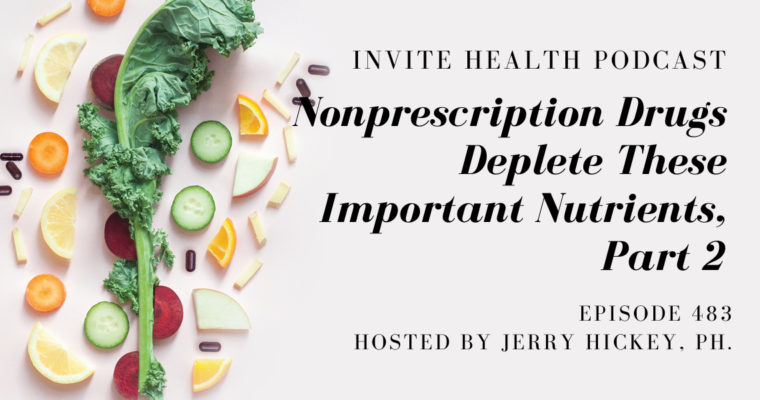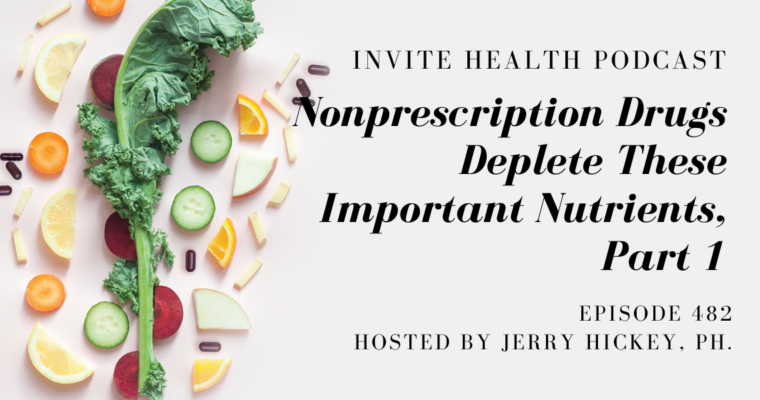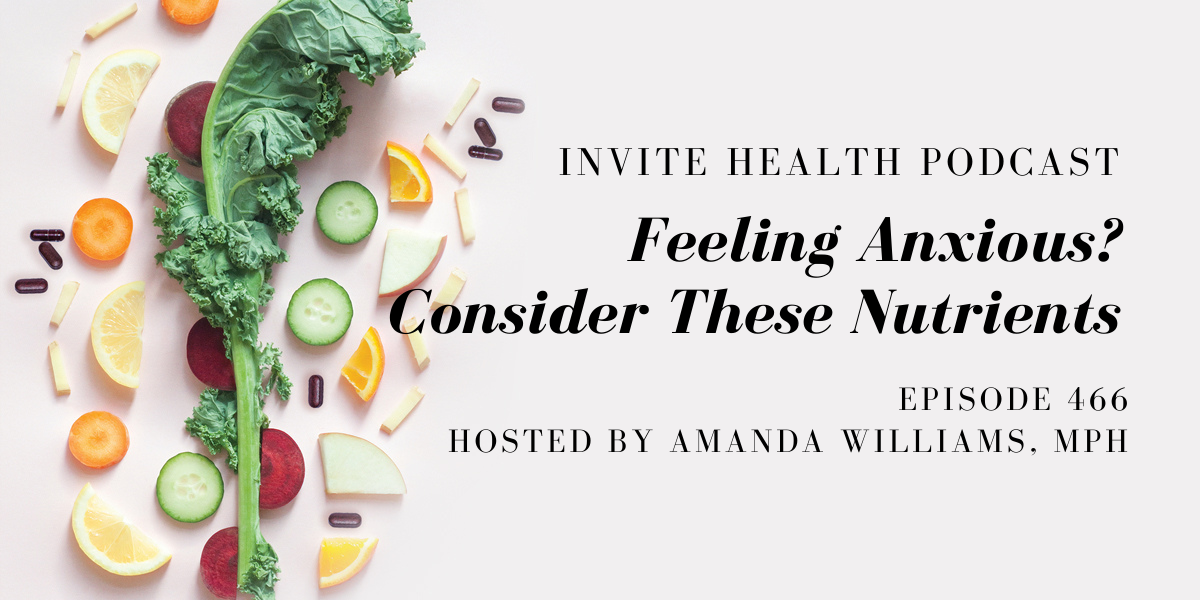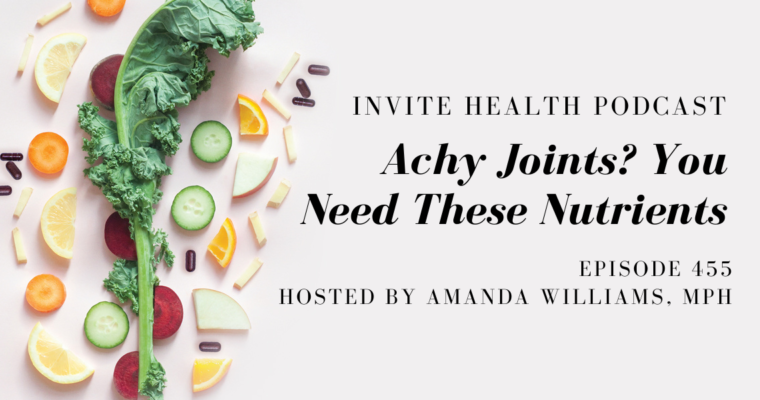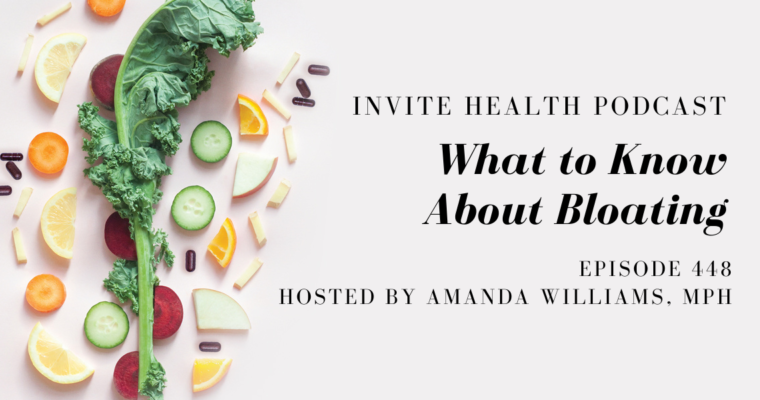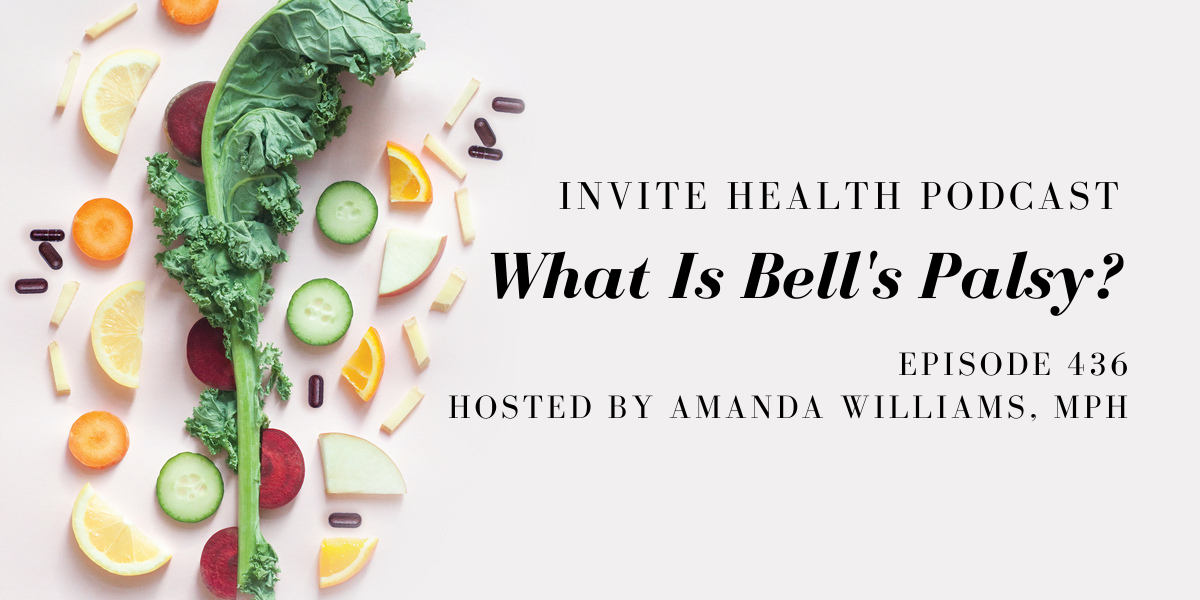anxious
InViteⓇ Health Podcast, Episode hosted by Amanda Williams, MPH
Subscribe Today!
When it comes to feeling anxious, many people have experienced this from time to time. But, there is a big difference between feeling anxious because of a big test or interview and living with anxiety on a regular basis. Today I want to talk about a few different nutrients that can zero in on those who are dealing with more chronic states of anxiety.†
What is anxiety and how does it exist in the body?
We know that anxiety is a normal response to stress. It does actually serve a purpose in the body. It can help us with the fight or flight response so we’re not putting ourselves into a dangerous or harmful situation. When that anxiety becomes more of a commonplace occurrence, then we fall more into the category of an anxiety disorder. We’re not just having a moment where we’re feeling anxious. This is the big difference.†
When it comes to anxiety disorder, this is usually broken down into three different categories. You have Generalized Anxiety Disorder, Panic Disorder and Obsessive Compulsive Disorder (OCD), which can also tie into different phobias and social anxiety disorder.†
OCD AND THE NUTRIENTS SHOWN TO BE SUPPORTIVE – INVITE HEALTH PODCAST, EPISODE 440. Listen Now>>
We know that anxiety disorders in general develop through a complex interaction between the brain and the body’s stress response network. This brings us to our adrenals and the HPA axis, as well as the GI system. We have to understand the functional role that our microbiome actually plays when it comes to regulating our anxiety.†

How to help when you’re feeling anxious
Most people who are told by their doctor that they have anxiety are usually given a prescribed medication. The problem is that many people who are anxious sometimes don’t take the medication because then they have the worry of what the medication might do to them or they might not be responsive to the medication, meaning that when they use it, it may not be doing much for them. This can drive up more of that anxiety.†
We want to make sure that we’re doing the right things to help fight anxious feelings. We should be getting adequate sleep, exercising and taking in the right nutrients every single day. There is a whole list of different nutrients that can be beneficial when it comes to targeting anxiety, including B-vitamins.†
Methyl-B would be a great option to have on board. The mineral magnesium is helpful for relaxation, so the Magnesium Glycinate would be a good option to take in the evening before bed. We can look at the amino acid theanine, which has its role in terms of mimicking the primary calming neurotransmitter, GABA.†
MAGNESIUM SPOTLIGHT: THE DIFFERENCE BETWEEN CITRATE AND GLYCINATE – INVITE HEALTH PODCAST, EPISODE 322. Listen Now>>
We can look at how the GI tract is so involved in anxiety disorders, so taking a good, comprehensive, multi-strain probiotic along with the prebiotic, such as the Probiotic HxⓇ, would be your go-to. This allows you to lay down good, healthy microbes to allow for the proper regulation of neurotransmitters throughout the GI tract.†
I also want to zero in on 5-HTP, which is 5-hydroxytryptophan. Tryptophan is an essential amino acid that we can derive from our diet, but 5-HTP is not found in our food. The body takes tryptophan and converts into 5-HTP, which then creates serotonin. We know that 5-HTP as a supplement has been widely-studied for its impact on problems caused by low serotonin levels. This includes issues such as depression and fibromyalgia. When we look at anxiety, we know that this can be accompanied by issues with mood and low energy states, but we also know that 5-HTP has certainly been shown to be very beneficial for that. When we look at combining that up with other nutrients such as adrenal adaptogenic herbs such as ashwagandha and rhodiola, as well as L-Theanine, using 5-HTP can really yield someone who is dealing with anxiety a whole lot of support.†
In this episode, Amanda Williams, MPH discusses what it means to feel anxious and how this issues comes about within the body. She offers recommendations for nutrients that can help with these feelings, focusing especially on 5-HTP.†
Key Topics:
- How common is anxiety?
- The dangers of feeling anxious
- Medications commonly prescribed for anxiety
- What can trigger anxious feelings
- Research on 5-HTP
Thank you for tuning in to the InViteⓇ Health Podcast. You can find all of our episodes for free wherever you listen to podcasts or by visiting www.invitehealth.com/podcast. Make sure you subscribe and leave us a review! Follow us on Facebook, Twitter and Instagram at InViteⓇ Health today. We’ll see you next time on another episode of the InViteⓇ Health Podcast.


